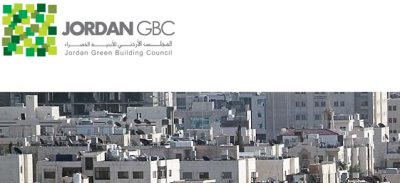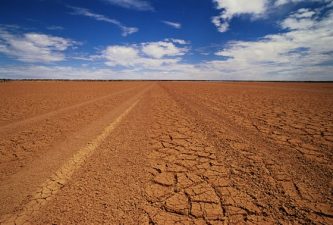 This interview rounds off our water series of interviews with Israeli water experts. In collaboration with the Strategic Foresight Group we’ve been busy talking with experts and policy makers and shapers from Israel on how it can help achieve water security in the region.
This interview rounds off our water series of interviews with Israeli water experts. In collaboration with the Strategic Foresight Group we’ve been busy talking with experts and policy makers and shapers from Israel on how it can help achieve water security in the region.
Today we speak with Oren Blonder, director of the Agriculture, Water and Environment Department at the Peres Center for Peace. Prior to working at the Peres Center, Oren served as Project Manager of a wastewater treatment pilot program in the industrial area of Ramat Hovav industrial zone in Israel.
Here are our 5 questions for Blonder:
Q1. Turkey and Israel have had talks about freshwater supply and purchase in the past. The Turkish government has been positive in its overall response so far but there is some opposition to this in the Turkish political spectrum. If the Turkish government were to agree to supply 1 BCM of freshwater to Israel, is there a possibility that Israel will agree in return to share this water with the Palestinian Authority (PA) and Jordan?
A1. I think that like everything else it comes down to financial issues. I certainly believe that a joint regional purchase of water can occur and if Jordan and Palestine will pay for their share Israel could facilitate such a transaction
Q2. Israel is counting on desalination as a major source of its future water supply. However, there are limits to the growth of Israel’s water supply based on marginal water alone. What are the other ‘regional’ solutions that Israel can examine in terms of water cooperation with other countries?
A2. “Creating new sources of water” has been one of the Peres Center for Peace’s objectives for the last decade. I believe that (1) proper recycling and re-use of treated wastewater, and (2) modification of crops so that they can be irrigated by saline water (such as Salicorniya – salt tolerant plants for example), can free freshwater for drinking and hygiene purposes. With regard to these two fields, the Peres Center has facilitated major cross border projects between agricultural sectors and decision makers from across the region. The Peres Center has also assisted university research in these two fields of study.
Q3. Lebanon’s Litani River has a particularly high quality of water, with a very low quantity of chlorates and nitrates present. Water cooperation with Lebanon would therefore serve Israeli interests but in order for this to happen, political cooperation between these two parties is required; in addition Israel-Lebanon relations are inter-linked with the Israel-Palestine conflict. Is it worth it for Israel to find political cooperation with Lebanon in order to secure its water situation or is this not a practical option?
A3. Unfortunately, due to the highly sensitive nature of the current political atmosphere in the region, I find it hard to believe that water cooperation by itself is a strong enough reason for cooperation between Israel and Lebanon.
Q4. Technical reports suggest that over-pumping is leading to the depletion of groundwater aquifers in the West Bank, both in terms of water levels as well as water quality. This could cause water shortages in the short-run and devastation of the eco-system in the long-run. What can be done to preserve these aquifers?
A4. As I mentioned earlier, we at Peres Center strongly believe that “creating new sources of water” is the right solution for this problem. I believe it is possible; it has the agreement of all sides and it is a pure win-win situation.
Q5. Israel has experienced a severe drought period in the recent past. With environmental neglect and the effects of climate change, this can be a frequent and imminent risk in the future. What can be done to minimize the impact of such a danger in terms of national measures as well as well as regional cooperation?
A5. I believe that all sides have certain advantages to gain from cooperation and cross border activities in this field, and that due to our shared scarcity of water, this is the only solution! One can not solve this type of problem alone, exactly like you wouldn’t expect a local authority to solve such a problem instead of handling it at the national level.
The Israeli experts water series:
1. All the Water in Israel: Interviews with Government, Analysts and Researchers
2. Interview with Israel’s past water commissioner, Shimon Tal
3. Gidon Bromberg on Water Security and Sustainability in the Middle East
4. Read our interview with Israel’s Water Commission
5. Interview with Eli Ronen, chairman of Mekorot
6. Interview with Ranaan Borel, water consultant and activist
7. Interview with the Mayor of Ashkelon, Benny Vaknin, a peacebuilder through water and the environment
8. Interview With Israel’s Ministry of Environmental Protection



Wonder is Mr Blonder would care to comment on the highly unscrupulous business activities of his business partner of MME Il Mr Ilan Friedlander – a professional crook – maybe your journalistic endeavors should attempt an undercover expose of this?